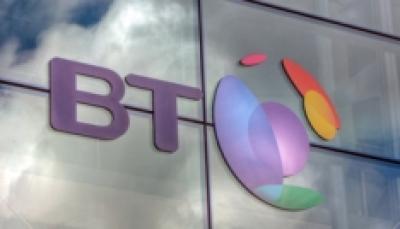

Rural areas of Britain could be set for cheaper broadband services, after the telecoms regulator Ofcom proposed significant reductions in the prices that BT Wholesale can charge Internet service providers for access to its network.
The proposed price reductions are between 10.75 percent and 14.75 percent below inflation, and Ofcom claims this could increase competition between retail Internet service providers (ISPs). The changes could also enable ISPs to allocate more bandwidth per customer, which would result in faster broadband services, said Ofcom
Ofcom says it will exempt ADSL 2+ technology from charge controls, in order to encourage BT Wholesale to invest in the new technology. ADSL 2+ is capable of supporting faster broadband speeds than ADSL, with maximum possible speed of 24 Mbps over the copper network.
BT said it understood Ofcom’s desire to move to more formal wholesale broadband pricing controls in rural parts of the country, but said the plans must strike the right balance between control and incentives to invest in rural areas.
BT has already stepped up its efforts to provide wholesale broadband services to rural communities. Only last week, the company announced the draft pricing and design proposals for its duct and pole sharing products, which will allow other operators to deliver ‘last mile’ broadband services to homes and businesses in the UK.
Communications providers will be able to rent space in BT’s underground ducts from £0.95 per metre per year, and the company is also proposing an indicative pole sharing price of £21.00 per pole attachment.
According to Ofcom, 78 percent of UK households are now served by effective market competition – up from 69 percent in May 2008 – following the continued success of local loop unbundling (LLU). However, this competition is mainly in urban or densely populated areas.
In December, the regulator announced it was lifting wholesale regulation in areas of the country where broadband competition is working well for consumers.
Elon Musk sells social media platform X to his AI start-up xAI in a move…
TikTok opens e-commerce shopping in Germany, France, Italy as US future remains uncertain over divest-or-ban…
Discover expert insights on overcoming digital transformation challenges. Learn how to manage change, balance innovation,…
Microsoft drops data centre projects amounting to 2 gigawatts of power consumption as investors question…
SMIC sees revenues rise 27 percent for 2024, but profits fall nearly 50 percent amidst…
Google reassures developers Android to remain open source as it brings development entirely in-house, reduces…
View Comments
Competition will be in urban areas - those areas with more population and housing will be more attractive to profit-seeking ISPs.
Telling BT to reduce their prices in order to enable other ISPs to make more profit just sounds wrong. Let's not forget who put the entire infrastructure in place to start with.
And no - I do not have any connection with BT!
Just for clarity sake - it was the taxpayer who paid for the telephone infrastructure in the UK. That family silver was sold off to make a huge profit for a few (like most utilities). How come other EU countries have a better broadband rural infrastructure. Is it to do with the greed and contempt that BT has for non-business users?